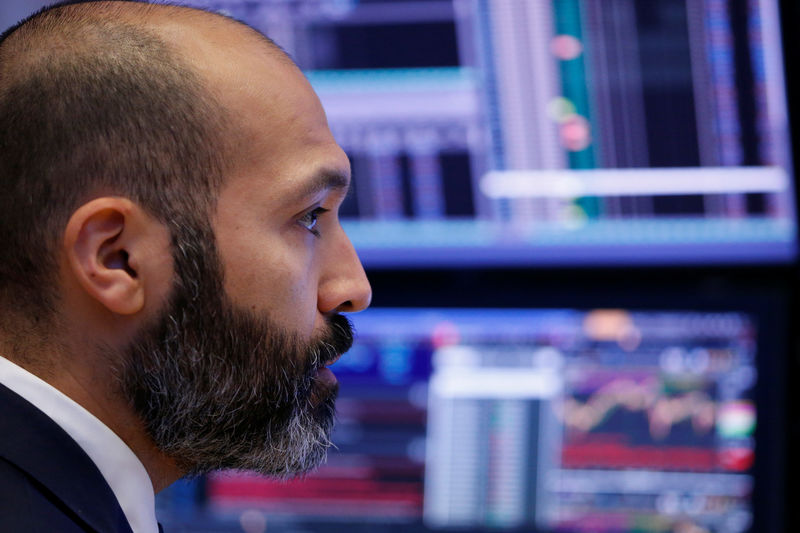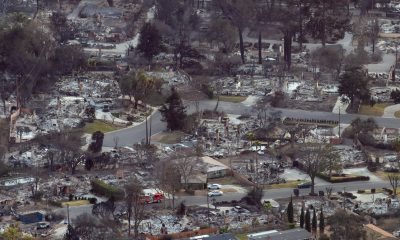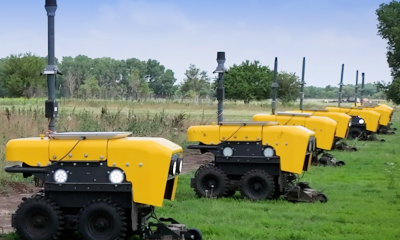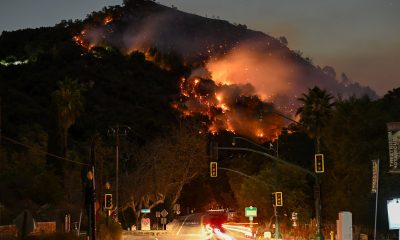Investing
Feeling the heat: 44% of Japan firms see earnings hit from extreme weather: Reuters poll

© Reuters. FILE PHOTO: Workers install a battery for a new electric vehicle model at Mitsubishi Motor Corp’s factory in Kurashiki, Japan May 19, 2022. Picture taken May 19, 2022. REUTERS/Satoshi Sugiyama/File Photo
By David Dolan
TOKYO (Reuters) – Some 44% of Japanese companies see extreme weather events around the globe hitting earnings, a Reuters survey showed, highlighting the impact of scorching heat waves and torrential rains on firms in the world’s third-largest economy.
More than three-quarters of Japanese companies are already taking or are now considering measures to deal with extreme weather, with energy-saving programmes and cost-cutting among the most popular responses, the survey showed.
Climate change poses vast risks to the global economy, experts have warned, including to output and worker productivity.
Disaster-prone Japan is no stranger to extreme weather events, including typhoons, floods and blistering heat.
“Infrastructure is likely to be disrupted due to extreme weather conditions, which could result in emergency spending and lower productivity,” wrote a manager at a company in the transport sector.
The monthly Reuters Corporate Survey of 502 large and medium-sized non-financial Japanese firms, in which 248 responded, showed a majority of non-manufacturers had already felt or expected to feel the effects of extreme weather on their earnings.
More than a third of manufacturers said the same.
The survey was conducted for Reuters by Research from Aug. 30-Sept. 8, with firms responding on condition of anonymity to allow them to speak more freely.
“Investment earmarked for capital expenditure is being diverted towards environmental measures and business continuity plans, which puts downward pressure on earnings,” wrote a manager at a machinery company.
Flooding has been a particular headache for Japanese companies. The January 2020 corporate survey found that 77% of companies had prepared business continuity plans for disasters, yet only 45% had taken concrete steps to protect their facilities.
In the latest survey, 58% of companies highlighted energy-saving measures as a response, while a quarter said they had already or would consider more flexible working rules, including the time of shifts.
Some 23% picked cost cutting – often seen as Japan Inc’s go-to plan in times of adversity – as their response.
Just 23% said they had yet to consider taking any measures.
Separately, 57% of firms said they did not expect a cabinet reshuffle to boost Prime Minister Fumio Kishida’s flagging popularity.
Read the full article here

-

 Side Hustles3 days ago
Side Hustles3 days agoWhy the Best CEOs Think Like Anthropologists
-

 Side Hustles6 days ago
Side Hustles6 days agoLA Rental Prices Skyrocketing Despite Price Gouging Laws
-

 Make Money4 days ago
Make Money4 days agoEarn More in 2025: Top 10 High-Yield Savings Accounts Revealed
-

 Side Hustles6 days ago
Side Hustles6 days agoHow to Craft Marketing Campaigns That Reach Multiple Generations
-

 Side Hustles4 days ago
Side Hustles4 days agoWhat to Do If TikTok is Banned — How to Protect Your Brand
-

 Make Money5 days ago
Make Money5 days agoBuild Your Future: 5 Simple Steps to Financial Stability
-

 Side Hustles4 days ago
Side Hustles4 days ago10 Roles That Are Surprisingly Well-Suited for Outsourcing
-

 Side Hustles5 days ago
Side Hustles5 days agoMeta Is Laying Off 5% of Its Workforce: Read the Memo


















